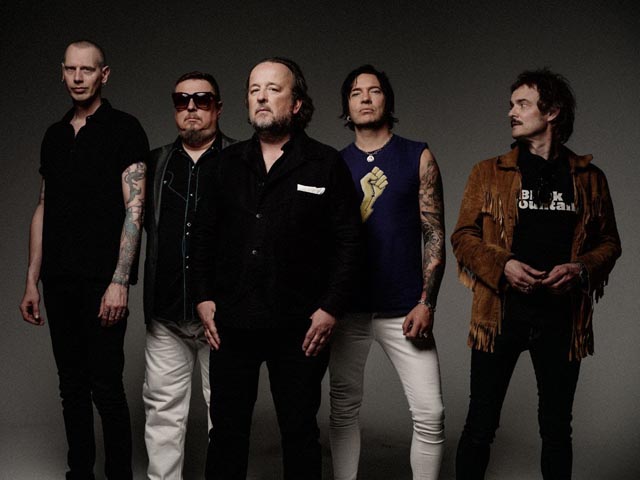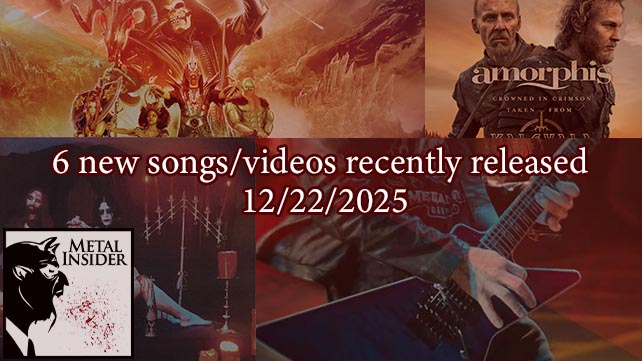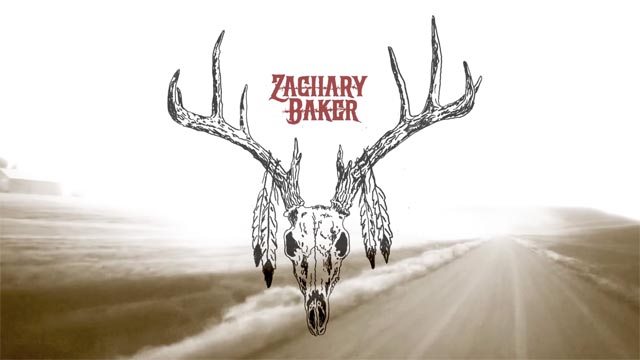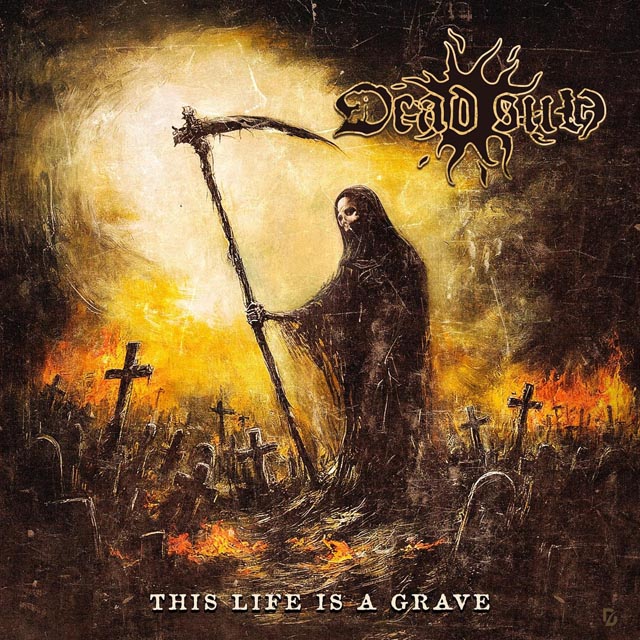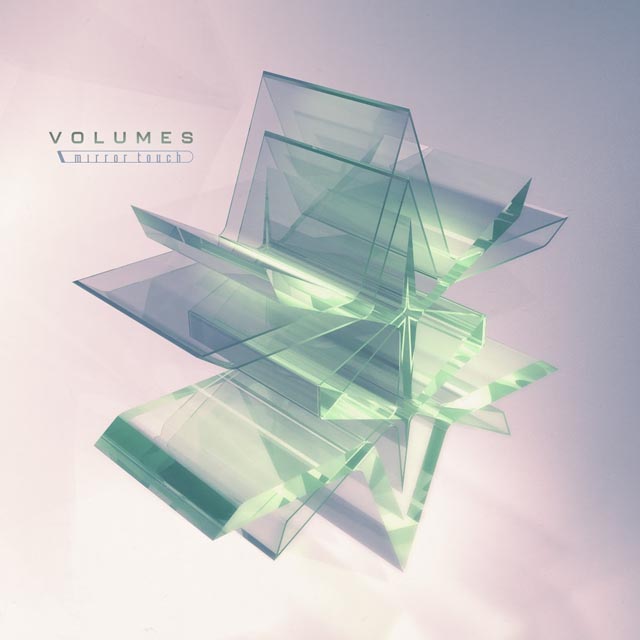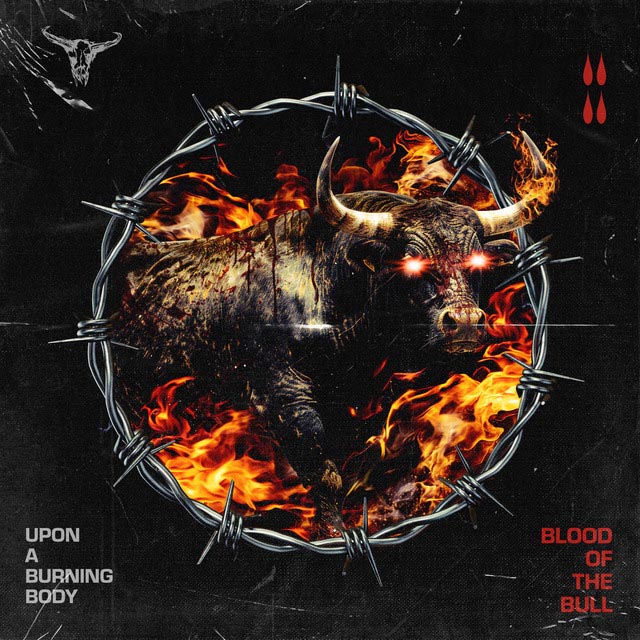 Sepultura is a world-renowned heavy metal institution. Even without acknowledging their pre-1998 back catalog with ex-frontman Max Cavalera, their reputation as a crushing and creative band remains intact. After dabbling in concept albums based on classic literature (Dante’s The Divine Comedy) and post-modern sci-fi (Anthony Burgess’ A Clockwork Orange), Sepultura brings it back to center on their latest release Kairos. By constructing their most introspective work in over a decade Sepultura has rediscovered their mid-90’s sound. From the album’s droning intro-piece “Spectrum” to the unrestrained thrash of “No One Will Stand,” Kairos hits on every aspect of the group’s career. Guitarist Andreas Kisser talked more with Metal Insider contributor Joshua Bottomley about the album that the Sepulnation has waited years for.
Sepultura is a world-renowned heavy metal institution. Even without acknowledging their pre-1998 back catalog with ex-frontman Max Cavalera, their reputation as a crushing and creative band remains intact. After dabbling in concept albums based on classic literature (Dante’s The Divine Comedy) and post-modern sci-fi (Anthony Burgess’ A Clockwork Orange), Sepultura brings it back to center on their latest release Kairos. By constructing their most introspective work in over a decade Sepultura has rediscovered their mid-90’s sound. From the album’s droning intro-piece “Spectrum” to the unrestrained thrash of “No One Will Stand,” Kairos hits on every aspect of the group’s career. Guitarist Andreas Kisser talked more with Metal Insider contributor Joshua Bottomley about the album that the Sepulnation has waited years for.
Many critics are hailing Kairos as a return to the “old” Sepultura sound. Were you aiming in that direction?
This album is inspired by ourselves. A little bit of everything that we did in our history since day one, it’s there. It’s Sepultura today. We wanted to try to reproduce what we are on stage. We play songs from every part of Sepultura’s history in order to have that kind of intensity. Every album that we do we try to reach for that, to sound as alive as possible. And we achieved more than ever this kind of vibe [on Kairos]. The album sounds very alive. We had a lot of fun recording. The production coming from Roy Z. was amazing. Musically, it has a little bit of the past. We didn’t try to represent another album. We have so many different albums throughout our history and we respect every one of them. I guess there’s a little bit of the thrashy old style. We listened to a lot of the bands we listened to before: Hellhammer, Celtic Frost, Destruction, Kreator, and Vio-lence. All that thrash. We went back to those feelings to try to remember what they were and how we did it, and why we did it. The limitations with vinyl on classic albums, they have eight or nine songs at the most. We did albums with 16-17 songs. So we decided that we needed to shorten the number of songs and really focus on each one of them. Really thinking about construction of solos, vocals, all of it. We didn’t try to copy anything we did [before] but tried to get that feeling back.
The last two albums, Dante XXI, and A-lex were concept albums. Is there a concept behind Kairos?
It is a little bit of a concept. It’s almost like as if we have our own biography in our hands and are reading our own history. That’s the feeling. In a sense it is a book. Of course we are talking about ourselves, about our own experiences. We have lyrics to our fans, our families, the touring, all the experiences we’ve had on stage. Lyrics for the press, the relationships we have: managers and labels. It’s not The Divine Comedy or A Clockwork Orange. But now we felt free to talk about things—to write. It was easier to write, because we are writing about ourselves. We didn’t need to follow any structure of a book, or anything like that.
Did it help that this was Jean’s [Dolabella, drums] second album with the band?
No doubt. We’ve played for five years. Did many tours. Now, the second album. It gets easier, definitely. He understands more about the old stuff, and we play a lot of the old stuff. We did the whole Arise album for the [20th] anniversary party last year. It helps to get that vibe, that feeling we used to play with. And we still do play those songs, “Arise” etc. But it helps, of course. We’ve played so many different stages, festivals with big bands like Metallica, Maiden, Faith No More, so you see a lot too. It helps, definitely.
This is your first release on Nuclear Blast. How has it been working with that label?
It’s definitely a step forward. Since last year, when we signed, everything has been working as we planned. It’s amazing. They’re doing a great job. They’re very excited to have Sepultura and we are very excited to be with them. I think the chemistry is great. They love the style of music. They understand how to work this. And they are fans themselves. Hopefully it will be like that for a long time. It’s a great partnership. The album is receiving amazing reviews. The response has been very positive. I think it’s a great place to be right now. It’s perfect.
Why did you choose to cover Ministry’s “Just One Fix” and Prodigy’s “Firestarter?”
Well, we always play covers. I think my first jam with Sepultura was to Destruction, Slayer and Kreator. We always like to jam. And we’ve [covered] some bands from Black Sabbath to Motörhead, all the hardcore and stuff, to U2, Massive Attack, Devo, New Model Army, and Bob Marley. So we always have something going in that direction. We like to jam. And this time we needed songs for bonus material for special releases here and there and Ministry came up. Ministry was a very important band in our history. We toured together in ’92 in the States. They weren’t that big at the time. They really brought something new to the scene, more of the industrial vibe and they influenced Sepultura a lot. You can feel the difference between Arise and Chaos A.D. There’s a little bit of Ministry there as well. The simple stuff, more direct, and some loops etc. They were really important for us and now we have a chance to pay tribute. They’re a great band. Prodigy was a little bit different, because we were never really influenced by them, but we respect them so much. They’re a great band live. They have a lot of influence from punk and hardcore and even metal in their music, especially live. There’s a lot of guitars and a lot of noise going on. And it was a challenge for us to make a cover. “Firestarter” is such a strong and awesome song and we were very happy with the way it came out. I think it will work out great live on stage.
Which of the new songs do you intend to play live, now and for years to come?
There’s many. “Kairos,” the title song, we’re playing on tour and it’s working great. Even “Relentless,” it’s amazing live. It’s kind of hypnotic, and the riff goes on and on. I’m expecting to play “Dialog” which I think will be a big challenge for us. It’s a very different song, very heavy as well, but has some clean parts. I think all of them are going to work very great live. And “Seethe” we’ve been playing since last year. Actually “Seethe” came from the leftovers of the A-lex sessions. We had this song, and we weren’t happy with the middle part, the heavy parts, and “Seethe” came up. So we’ve been playing that song for quite a while. All of them I think will fit great. “Spectrum” could be cool. We didn’t play that yet, but we are preparing a new show now that the album’s out and we are preparing to go back to North America early next year with the new tour and stuff, so hopefully we will play some of the new material.
For the Thrashfest Classics European tour this November/December with Exodus, Destruction and Heathen, you are only playing songs from Beneath the Remains, Arise and Chaos A.D., correct?
We are going to choose songs from the three [albums] and create a set list around that era. The whole festival has that kind of [throwback] idea. It’s great. I think the concept is awesome. There’s a lot of kids who want to see some songs that we never play live, because we have no room in our set list. I think it will be a good challenge for us to try to learn some old stuff that we don’t play for a long time. The set list is still being worked out. We have some songs that we already play, but we’d like to do some extra stuff that we don’t do for many years and try to do something different for us as well.
Is there any music out there now that you listen to for inspiration?
Not really listening so much, but playing. I play a lot of different music, not just thrash or heavy metal. I love to play the blues. Here in Brazil there are many different blues musicians that I jam together [with]. I also play classical guitar, which brings me a lot of different ideas and different ways of seeing music. And I play with a lot of reggae and pop musicians in Brazil. I’d rather be active in music than trying to collect by ear. I learn a lot more doing it with the people behind the music and being friends with them and understanding how they do things and how they see music. It keeps me fresh with ideas. It’s also a pleasure to share music like that. I have kids that have their own musical tastes, so I hear that as well. I don’t care what is going on, on the radio. The radio I listen to only for news and football.





